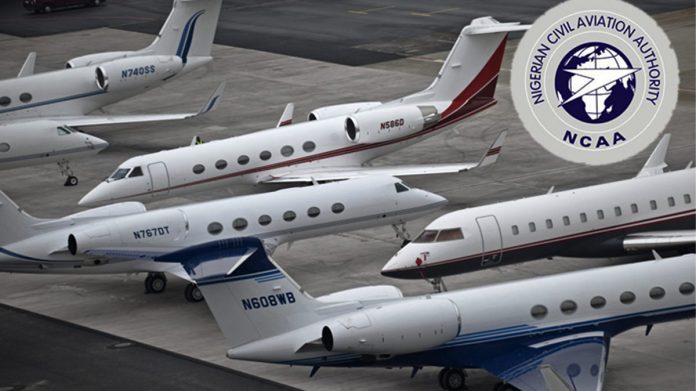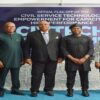Nigeria Civil Aviation Authority (NCAA) has said that adverse weather conditions made two aircraft fly over Aso Rock, a segment of Nigerian airspace classified as “Prohibited Flight Zones” – DNP4.
The NCAA, in collaboration with the Nigerian Airspace Management Agency (NAMA), investigated two recent incidents of violations in Abuja’s prohibited flight zones. The investigation revealed that these were controlled flights in controlled airspace that inadvertently entered restricted airspace due to adverse weather conditions.
Acting Director General of NCAA, Captain Chris Najomo, said; “We want to assure Nigerians that the nation’s airspace is safe and secure. There is no reason to doubt the full coverage of Nigeria’s airspace by radar, as the Nigerian Airspace Management Agency (NAMA) is in control.
“NCAA can confirm that NAMA had complete radar footages of the two violations, with full details of the identities of the aircraft and operators involved. This was possible due to functional Primary and Secondary Surveillance Radars in Abuja. Similar installations are in Lagos, Kano, and Port-Harcourt.”
The Authority, in line with its regulatory responsibilities, issued an All Operators Letter (AOL DGCA/021/24), using the term ‘unknown aircraft’ as reported to NCAA, which is standard security terminology. However, investigations showed that NAMA had complete footage and details of the aircraft that entered the prohibited flight zone.
Najomo added; “NCAA can also confirm that NAMA had complete radar footages of the two violations with full details of the identities of the aircraft and operators involved. This was only made possible due to functional Primary and Secondary Surveillance Radars in Abuja. Similar installations are in Lagos, Kano and Port-Harcourt.
“The Authority in keeping with its regulatory responsibilities issued an All Operators Letter (AOL DGCA/021/24) wherein the term ‘unknown aircraft’ was used as reported to NCAA which is the normal security terminology. “However, investigations revealed NAMA had complete footages and details of the aircraft that entered the prohibited flight zone.
” The Primary Surveillance Radar alone only identifies aircraft as moving targets without aircraft identity. However, the Monopulse Secondary Surveillance Radar (MSSR), on the other hand, which forms a major component of the TRACON, is the equipment that allows for identification of any aircraft equipped with ATC Mode ‘S’ transponder.
“The requirement for all aircraft flying in controlled airspace to have serviceable ATC transponders in an international standard that Nigeria ensures strict adherence to.
”This requirement derived from Annex 6 to the Convention on International Aviation is documented in Part 7 of the Nigeria Civil Aviation Regulations.
” This, therefore, makes it a violation of the regulations, and indeed a security breach, for any aircraft to put this system off while flying in controlled airspace, and such action would attract appropriate sanctions in accordance with NCAA’s enforcement procedures, including possible criminal referral.”
![]()





























































